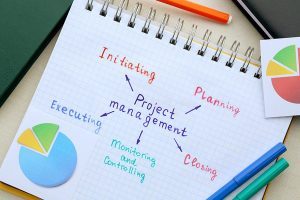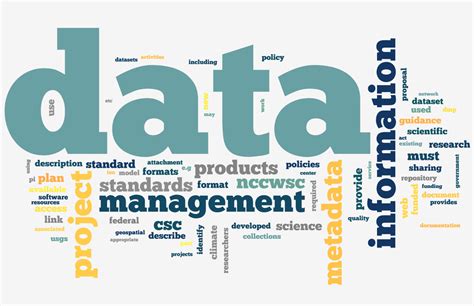Enterprise Resource Planning (ERP) implementation roadmap
A project is a planned set of interrelated tasks to be executed over a fixed time period and within set costs to achieve the desired corporate goals. A typical project is always associated with the organization’s goal timeline and a budget. The Project Management Institute, or PMI, defines project management as the application of knowledge, skills, tools and techniques to a broad range of activities in order to meet the requirements of a particular project.
A project manager should address the following key questions:
- What problem are you solving?
- How are you going to solve this problem?
- How will you know when you’re done?
- How well did the project go?
It is important to recognize that an ERP project not an IT project! Due to the fact that ERP systems are based on information technology, people often assume that ERP implementations are IT projects. This is not correct. An ERP system is the backbone of an organization’s entire operation, so you require engagement and commitment from every department. An IT-driven implementation without adequate organizational support, is likely to result in costly delays, user resistance, dissatisfaction, or even outright failure.
The IT department will take care of the information system and also be responsible for compatibility and integration with other data-dependent systems and equipment – both within and connected to the enterprise. However, the responsibility of defining the new business processes that will drive system configuration falls squarely on the shoulders of the system users.
The quality of an ERP project implementation has a very significant impact on the ERP system’s long-term success or failure. A greater Return on Investment (ROI) is more likely to experienced in a shorter time if the project is done well. However, if the implementation process is poorly executed, you are likely to waste lots of time and money without ever seeing any returns. It is crucial to make every effort to optimize the ERP implementation process by taking on the implementation with a lucid understanding of what needs to be done, when it should be done and why when it should be done.
Therefore an ERP implementation process requires a clear roadmap that addresses the following key aspects:
The implementation team
Start by gathering together a team of top-notch experts and stakeholders in the implementation process to ensure that you meet all the requirements possible. Identify who needs to be involved, engage them, and create a communication plan with a schedule for meetings and updates.
User training
It is not easy for end-users to embrace and use an ERP solution seamlessly without training. It is important to identify the relevant training resources, determine the quantities of financial resources required and monitor the user understanding and engagement of the new software.
Evaluate your infrastructure
If you need to supplement your computing infrastructure to implement your ERP on-premise, begin by determining what infrastructure you will require, how much it costs, and how it is going to be installed. For a cloud-based ERP solution, however, the infrastructure requirements are at a minimum because it is hosted off premises.
Data transfer strategy
One of the most difficult process in an an ERP implementation is the data transfer process. Precisely identify the data will require to be transferred, the location of the data, resources required for the data transfer, and the testing protocols to determine if the transfer is successful and complete. It is critical that you should not leave any data behind, otherwise it could cost you in the future.
Create testing scenarios
Every module of the ERP solution should be tested before going live with it. It is crucial to form a team that is in charge testing and resolving errors with clear timelines and well defined workflows. The use of testing scripts will help to ensure that every possible workflow procedure is tested thoroughly to identify and rectify any errors and bugs in the system processes or in the data.
Define the configuration and customization
Due to the uniqueness of each organization’s processes, the ERP that is selected for implementation will most likely customization of its interfaces and functions to the existing workflows and organizational structure. By collaborating with the ERP consultant, you can identify the required customization to enable configuration and customization of the ERP without compromising its functionality and to prevent future customization challenges.
Project timelines
The ERP implementation process should be documented with concise schedules and timelines to make it easier to track the project progress and adjust accordingly. It is delusional to expect any software implementation to proceed without any hiccups, so there should be clear project milestones and benchmarks that define success or failure.


